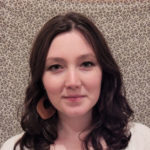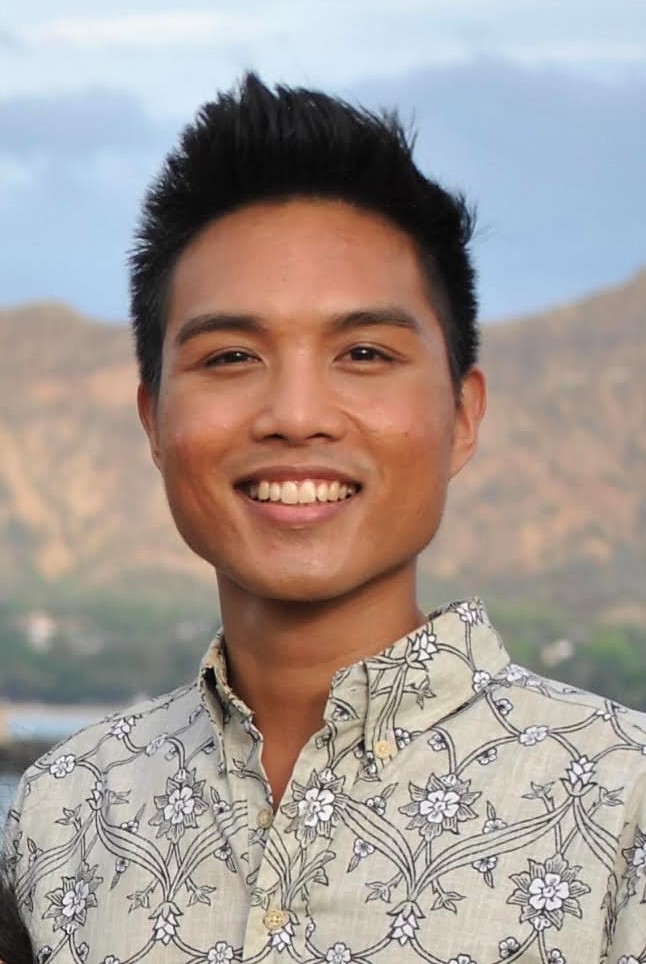Spring 2021
3
The Business of Poetry:
A Chat with Aldric Ulep
Abriel Newton, Editor (Class of 2021)
The Business of Poetry:
A Chat with Aldric Ulep

Abriel Newton
Class of 2021
One of the unique features of RWW is the Outside Experience. During their second year of the program, students organize individual projects to further their careers as writers, and/or their understanding of the craft. We caught up with second year student Aldric Ulep (2022) to discuss his OE as executive assistant for The Speakeasy Project, a literary arts organization and boutique talent agency.
Abriel Newton: For your Outside Experience, you’re working with The Speakeasy Project. How did you find out about this? Can you tell us a bit about what it is?
Aldric Ulep: This question touches on why I’m pursuing a low-residency MFA, and why it’s right for me. When I first sought to study creative writing, my curiosity led me to one of The Speakeasy Project’s online workshops. That month-long course with a small group of writers from across the country was energizing and unforgettable, and I marveled at how a virtual space can facilitate access to resources and a community that I wasn’t sure how to find locally. That’s why I was eager to give back to The Speakeasy Project and their hardworking team, and I’ve been excited to help TSP grow as a literary arts organization and boutique talent agency.
AN: You’re organizing a poetry workshop for business people. What made you want to pursue this?
AU: It was a challenge I issued to myself: How might I encourage people in my network to read poetry? What could this mysterious, esoteric art form awaken in more pragmatic sensibilities? Or, more fundamentally, why does poetry matter? Now, I also ask this question for selfish reasons—I am trying to articulate for myself why I find poetry compelling, and what poetry contributes to the world. I thought this would be one way for me to reach for an answer.
More idealistically, I think we could use more poetry in the world—as salve, as avenue for understanding, as a uniting element for community—and my hope is to promote poetic encounters, to surprise those who might not normally read poetry. If people take away practical lessons, or simply find enjoyment (or both!), all the better.


Aldric Ulep
AN: Creative writing feels so far removed from the business world—what’s it like working with other people that aren’t necessarily creatives in their day jobs? Has it been less serious (read, less like an MFA) than you expected? Is this refreshing?
AU: It’s funny because I myself am not necessarily a creative in my day job! The concept of a day job tickles me, because as much as I try to compartmentalize my life, I end up bringing myself to everything I do. It’s just that I switch out the lens, and different modes are activated.
What’s interesting to me is, with The Speakeasy Project, I work with creatives in a business context. I’ve filled out spreadsheets, sent out cold emails, researched regulations, and drafted formal agreements, sometimes without remembering I’m working with nationally recognized writers. It feels mundane to request legal forms from poets I absolutely admire, but it must be done! And every step makes each poetry reading, workshop, or class visit possible.
AN: I’m sure everyone is totally used to Zoom life, but, in your opinion, what setbacks come from a remote workshop, especially in an arena that shares creative and personal work? How do you and the other students keep up authentic energy when you aren’t feeling emotional feedback?
AU: There’s this whole discipline on environmental psychology that studies how your surroundings affects your mindset and shapes your decisions. Last year’s virtual residency went exceptionally well, but I miss three things about the in-person workshop: eating together, taking walks, and experiencing the magic of chance encounters. For me, it’s everything that occurs in between the actual workshops and classes which shape the learning.
Virtual intimacy is possible, and in the meantime, it will have to do. We have regular cohort Zoom calls; I correspond with a couple of writers fairly regularly, and I participated in a small group of writers doing a poem-a-day challenge; I bump into friends at the same virtual events, and we blow up the chat together. It’s an approximate intimacy, but in a way, it prepares us for the post-residency life.
"I’ve filled out spreadsheets, sent out cold emails, researched regulations, and drafted formal agreements, sometimes without remembering I’m working with nationally recognized writers."
AN: I’m sure everyone is totally used to Zoom life, but, in your opinion, what setbacks come from a remote workshop, especially in an arena that shares creative and personal work? How do you and the other students keep up authentic energy when you aren’t feeling emotional feedback?
AU: There’s this whole discipline on environmental psychology that studies how your surroundings affects your mindset and shapes your decisions. Last year’s virtual residency went exceptionally well, but I miss three things about the in-person workshop: eating together, taking walks, and experiencing the magic of chance encounters. For me, it’s everything that occurs in between the actual workshops and classes which shape the learning.
Virtual intimacy is possible, and in the meantime, it will have to do. We have regular cohort Zoom calls; I correspond with a couple of writers fairly regularly, and I participated in a small group of writers doing a poem-a-day challenge; I bump into friends at the same virtual events and we blow up the chat together. It’s an approximate intimacy, but in a way, it prepares us for the post-residency life.
AN: You work for the Hawai‘i state government, so how did you personally come to poetry? Further, what intersections or crossovers have you found between poetry and business?
AU: Poetry found me long before I started working in government. I have several great teachers to thank for that! But what brought me to government and policy analysis was, at first, a curiosity about how social problems are tackled. Then I learned about social entrepreneurship and human-centered design, or design thinking. Definitions can vary, but as I understand it, three key elements of design thinking are (1) a deep understanding of the problem and those affected, (2) turning this problem into a question, and (3) a feedback loop that informs prototypes of solutions. Isn’t this iterative process of design like art and revision? Spending time with the question, and searching for the many ways it might be answered? I hear Rilke’s charge to love the questions. Poetry is fundamentally about inquiry and making; poetry doesn’t claim to have the answers.
"Poetry is fundamentally about inquiry and making; poetry doesn’t claim to have the answers."
AN: What effect is your OE having on the creative work you’re doing at RWW?
AU: My Outside Experience puts pressure on the alive-ness of poetry. It’s not just words on a page: it’s spoken and shared, it’s gifted and appreciated, it’s reciprocated with more poetry. Poetry is not just the end-product—it’s the process of making and renewing. Creative work often requires some degree of time alone, and, sometimes, the tunnel vision sets in and I feel like the end goal is the polished, published poem. And sometimes, it is. But my Outside Experience reminds me to turn outward. It situates creative work in the world, and what it means to contribute to it.
AN: What have you learned the most from this experience? As a person, as a writer, or as a member of your community?
AU: Life is all about the relationships you build with others. If I only had a vague idea of what that meant prior to my Outside Experience, I now understand a little bit more. The centrality of community.
AN: What’s been most surprising to you about this experience?
AU: How much work is involved in bringing artists to virtual events! There are so many considerations I’d never thought of, a lot of planning and strategy that needs to take place. On a more personal note, I’ve been surprised by how I’ve started warming up to calling myself a writer. It’s not that I was embarrassed or anything, but writing is something I’ve always seen as a hobby, something not at the center of my identity. I’m slowly learning that writing extends to a lifestyle.
"Life is all about the relationships you build with others. If I only had a vague idea of what that meant prior to my Outside Experience, I now understand a little bit more. The centrality of community."
AN: What advice would you give someone who is apprehensive about their OE, or doesn’t know where to start?
AU: When you have an idea, even if it seems out of left field, write it down. Keep a running list. Ask yourself, what experience would most deepen your art? Maybe it’s the gift of uninterrupted time in a retreat. Or, what question weighs heavy on you, one you suspect could lead you to your next artistic inspiration? Maybe you will follow that question to conduct a research project or oral history. Or, what do you want to learn, who do you want to serve, where do you want to go? Maybe you will intern at a press, or teach a class. Also, browse through the Outside Experience online archive. The Outside Experience grants you the opportunity to reflect on what you think you need to do to elevate your life as an artist. For me, it was about feeling that I have permission to step into a life that centers writing.
Aldric Ulep (2022) is a proud member of RWW Cohort 16 and lives in Pearl City, Hawai‘i. By day, he works as a legislative fiscal analyst at the Hawai‘i State Legislature and earned his B.A. in Public Policy from Stanford University. His poetry can be found in Tinfish, Bamboo Ridge, and TAYO Literary Magazine.
